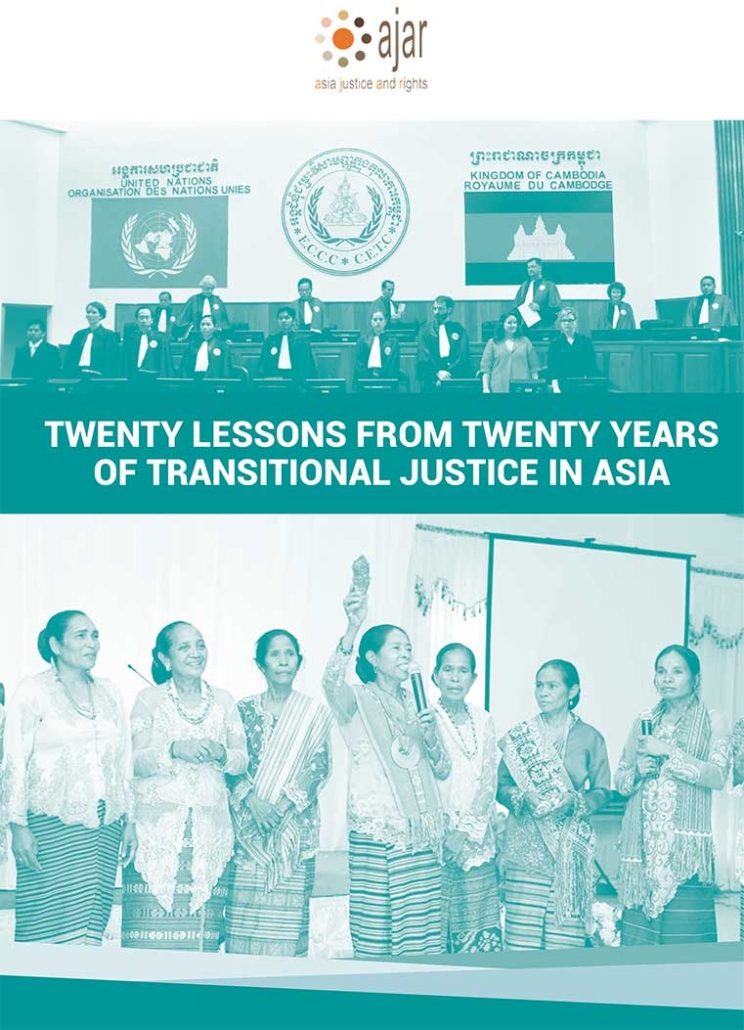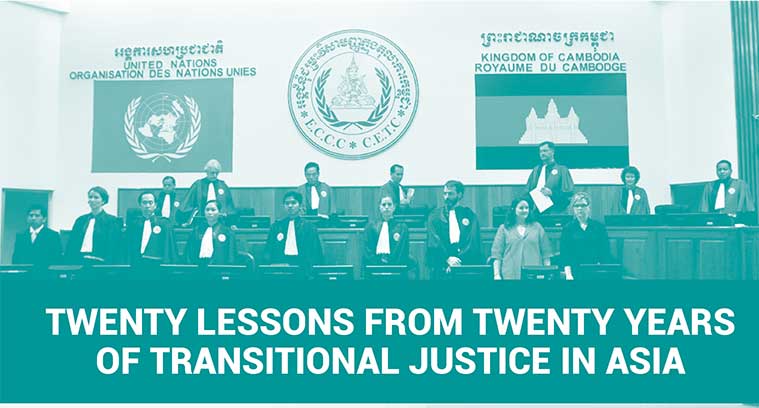Twenty Lessons from Twenty Years of Transitional Justice in Asia
According to the United Nations, the term transitional justice (TJ) covers all of the strategies a society employs to address a history of mass human rights violations. Although this may include a broad range of steps designed for particular contexts, usually those approaches will also fit within the four basic pillars of the TJ framework.
The four pillars are:
- uncovering and making public the truth about the violations, including the root causes;
- investigating and prosecuting those responsible for mass crimes;
- taking effective steps to repair the lives of victims; and
- undertaking the social, legal and institutional reforms needed to ensure that the violations do not recur.
The different strategies that relate to each of the four pillars do not need to be implemented at the same time, but rather should be sequenced according to the needs and opportunities of the context. However, all four pillars should be included in a holistic TJ strategy.
This publication does not attempt to deeply analyse or interpret the meaning of transitional justice or the duties under the four pillars, which are more than adequately covered in many academic works. The aim of this paper is to provide a relatively short, simple language guide to some key lessons that have emerged from efforts to deal with legacies of mass violations in Asian contexts.
The lessons discussed are drawn from inputs from the more than 60 Asian TJ experts that are part of the Transitional Justice Asia Network (TJAN), an initiative created and managed by Asia Justice and Rights (AJAR). 1 This paper is informed by the inputs of those TJAN experts who attended a workshop that focused on two decades of TJ lessons in Asia, held in Aceh, Indonesia in March 2018. 2 The paper also draws on the author’s own experience in transitional contexts in Asia over the past two decades, marking twenty years since reformasi in Indonesia. The material in this work is based on practice rather than theory. Each of the many lessons could itself be the subject of a full study, and there are many more not mentioned here. This paper provides only very brief summaries of each.

Owner/Developer : AJAR
Language : English

